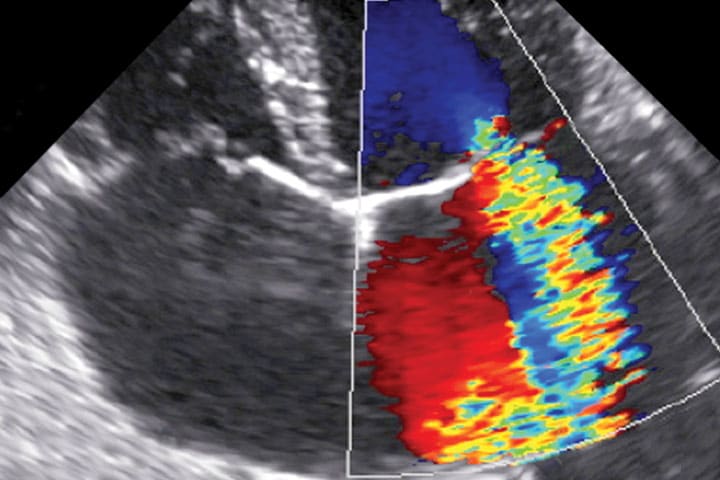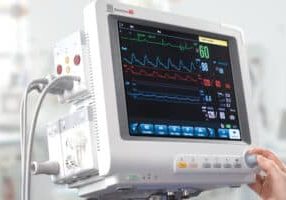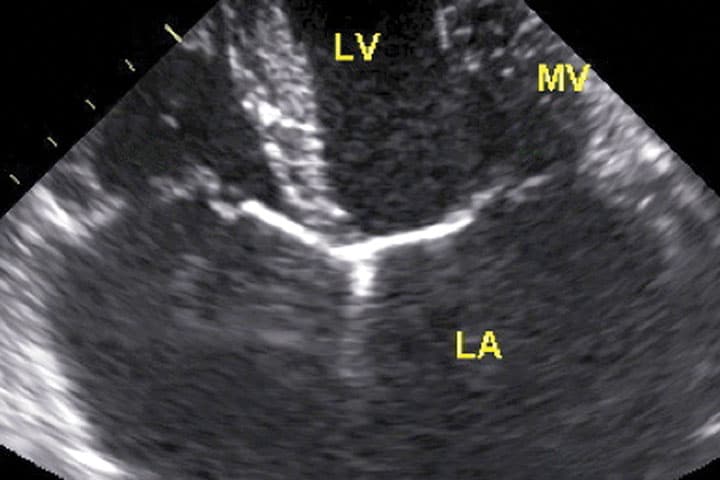
The presence of a heart murmur in a puppy could signify congenital disease with a spectrum of possibilities, ranging from mild disease with no clinical significance to severe, possibly intractable disease. However, not all murmurs are pathologic and ‘innocent’ murmurs are frequent in young puppies.
Non-Pathological Murmurs
Typically, non-pathologic, functional or innocent murmurs are of low grade (If a murmur with the above characteristics is detected on the first evaluation, further investigations are not necessarily needed but monitoring and further assessment should be discussed with the owner. The owner should also be aware that significant disease cannot be ruled out and that cardiac disease may develop in the future independently of the presence of an innocent murmur.
Murmurs with different characteristics from those described above for functional murmurs, warrant further assessment. Murmurs graded at 3/6 or higher, continuous or diastolic murmurs, concomitant transient abnormal heart sounds, a murmur that radiates to other thoracic or the carotid regions, a systolic murmur loudest at the left apex or at the right hemithorax regardless of the murmur intensity should prompt further investigations. Echocardiography is the test of choice in most cases.
Pathological Murmurs
Most pathologic murmurs are easily detected but in some instances these can be elusive. For example, a continuous murmur of a PDA can be limited to the left cranial (axillar) region and be easily missed if the presence of such murmur is not actively searched. Skipping auscultation on the right side is also a common reason for missing heart murmurs.
Common Congenital Heart Diseases
The most common congenital heart diseases in dogs include patent ductus arteriosus (PDA), pulmonary valve stenosis (PS), (Sub) aortic stenosis (SAS) and VSD. There are safe and very efficient techniques for definitive treatment of PDA and PS. Treatment is also possible in selected cases affected by other congenital heart diseases including SAS, VSD and ASD. Early detection of congenital heart disease is therefore paramount to pursue a chance of treatment.
Top Tips for Use In Practice
- Take time, focus and listen carefully, in all areas of auscultation
- Use a good quality stethoscope that you are familiar with
- Some respiratory sounds mimic murmurs. Make sure that the murmur is synchronous with the heart beats and not with the breathing
- Never dismiss a murmur as benign or omit its presence
- Murmurs are likely to be non-pathologic if:
- Are graded
- Are limited to the left basilar region
- Do not radiate
- Further investigations (echocardiography) are advised if:
- The breed has predisposition for congenital heart disease
- The murmur is graded at 3/6 or higher
- The murmur is continuous or diastolic
- There are concomitant transient abnormal heart sounds (e.g. split S2)
- There is murmur radiation to other regions
- The murmur is loudest at the left apex or the right hemithorax
- There are other abnormalities suggestive of heart disease (pulse abnormalities, jugular distension, arrhythmia, etc)
- A murmur with non-pathologic characteristics does not rule out heart disease:
- Discuss with the owner a plan. Watchful waiting may be adequate depending on risk assessment
- Most congenital heart diseases are subclinical at first presentation. Treatment, if available, should be sought before the onset of clinical signs.
For information see our Puppy Murmur Clinic page.
Case Advice or Arranging a Referral
If you are a veterinary professional and would like to discuss a case with one of our team, or require pre-referral advice about a patient, please call 01883 741449. Alternatively, to refer a case, please use the online referral form
About The Discipline
Cardiology

Need case advice or have any questions?
If you have any questions or would like advice on a case please call our dedicated vet line on 01883 741449 and ask to speak to one of our Cardiology team.
Advice is freely available, even if the case cannot be referred.
